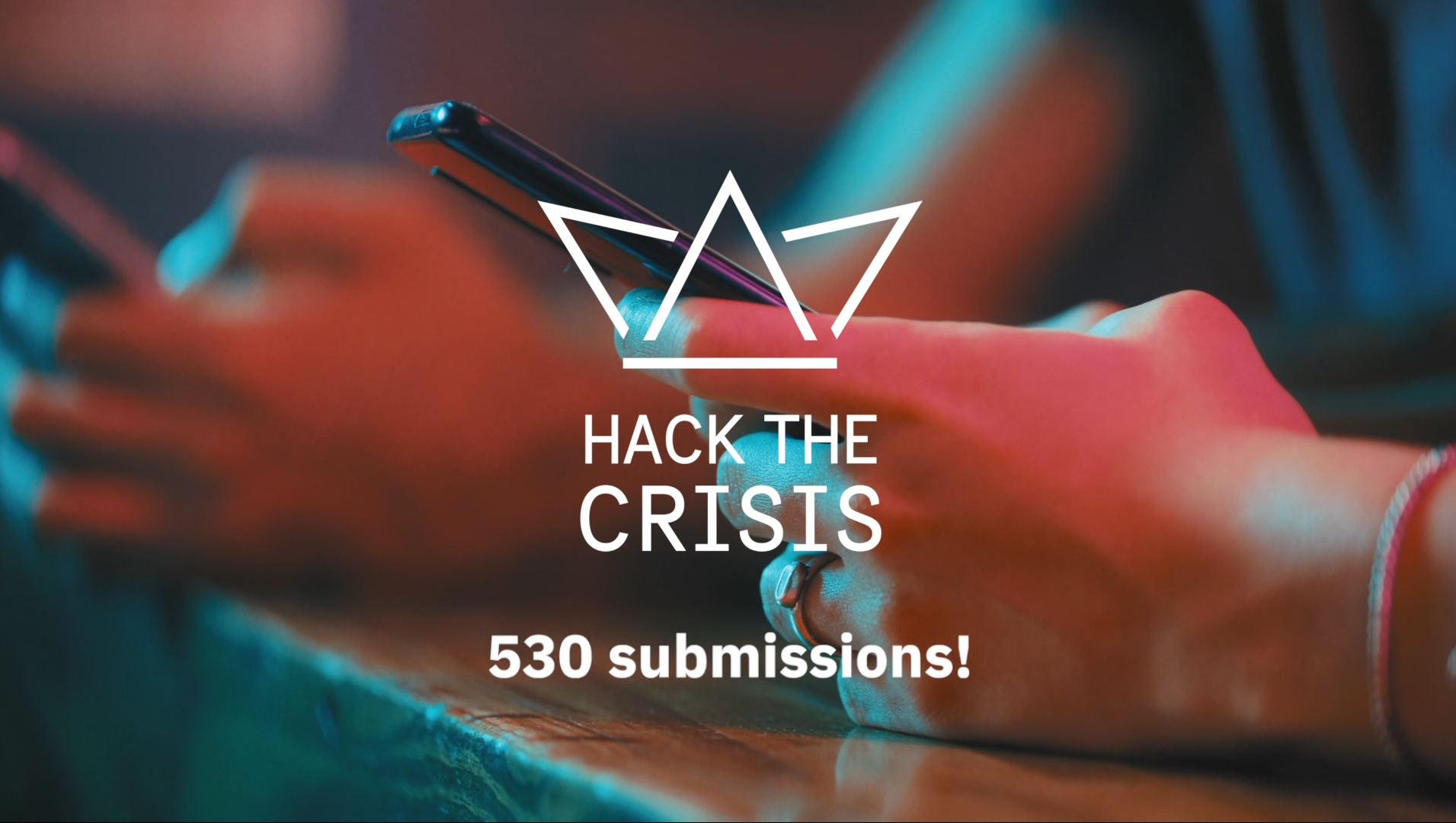48 hours, 7,439 participants, and 500+ submissions – this is Hack the Crisis Sweden in short. Last weekend, Hack for Sweden and Openhack, powered by the support from the Swedish Government and DIGG conducted the 48-hour online hackathon aimed to find solutions to problems caused by COVID-19.
The hackathon’s mission was to design, test, and execute ideas for the future of Sweden and the world. The hackers had to solve one of three challenges: save lives, save communities, and save businesses. Further on, participants submitted a project in two tracks:
– Digital Solution where teams had to build an MVP and present a demo video.
– Concept Solution where teams had to develop a concept for the society that requires collaboration by government agencies or other organizations.
As a community partner, Sigma Technology supported Hack the Crisis with mentorship, publicity, and hackers.
One of Sigma Technology hack teams with the solution Immune Volunteer Portal has placed #2 in the category Save Communities (Concept Solution) among all other submissions.
Huge congrats to Ender Culha, Samet Saygili, and Can Sarıoğuz, who created Immune Volunteer Portal! The team shared with us their impressions after the weekend:
“Hack the Crisis was a great experience for us. We have decided to follow the track with the concept solution and created the idea of Immune Volunteer Portal. Core mechanisms of the society such as health care and elderly care are suffering from the lack of staff during the crisis of COVID-19. To keep these mechanisms running, volunteers are required. We have proposed to create a web portal where volunteers, who believe that they have had COVID-19 and recovered, can register. After registration, the volunteers take antibody tests (the Public Health Agency of Sweden plans to conduct such tests within a week at Karolinska Institute) and verify immunity. These immune volunteers will be searchable and contactable by the organizations and people who need help, including hospitals, health centers, elderly care centers, governmental authorities, and individuals who are more vulnerable to COVID-19 and need help.
We were thinking about how we can help the community to overcome this crisis during our conversations. When we saw that there will be a hackathon about it, we quickly decided to join and wrote down our solution.”
The team is willing to go further with the solution if they receive interest and support from the responsible agencies and organizations.
Other colleagues at Sigma Technology worked with different solutions. Alexander Golubev shared his experience:
“Apart from being a mentor, I decided to make a submission and see another side of the moon as a hacker. I wanted to see if the way how we use our phones in these virus times could be a bit safer. I discovered that there exist portable boxes with UV lamps that can kill viruses from the surfaces of the objects you put into the box, including phones. A few solutions were spinning around, but considering the time frame and feasibility, we have eventually chosen one that was later submitted – an accessory container with an antibacterial gel that can be attached to the phone or phone case.”
Mazin Housin joined a team that was working on a platform where available talent could create new businesses and businesses could form collaborations and consortia to meet challenges and re-shape the way of doing business.
The winners were announced yesterday during the live stream, you can read their motivations at hackthecrisis.se. The full list with presentations and submissions will be shared shortly. We want to thank all our hackers and mentors for joining and we extend huge thanks to the organizing team behind Hack the Crisis, Hack for Sweden, Openhack, and DIGG, who worked around the clock to make it happen.
Hack the Crisis from etablera.co on Vimeo.
If you didn’t have a chance to participate in Hack the Crisis in Sweden but have a brilliant idea, team, and determination, there is another hackathon coming up on April 9 – The Global Hack.
